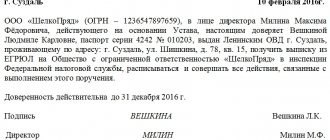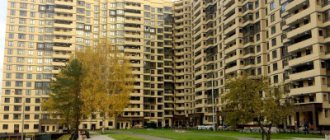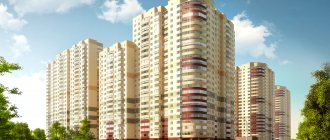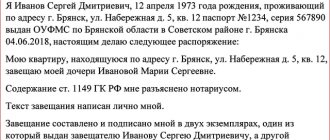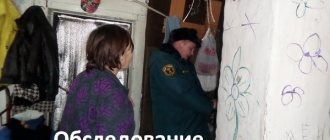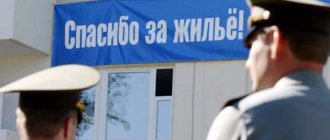Where can I get an exact list of documents?
The law does not establish a unified list of documents required for registration. Lists are determined during the development of state assistance programs and the adoption of local administrative regulations. This is due to the fact that social support is provided by funds not only from federal but also from regional budgets. It is impossible to take into account the interests of all regional authorities in a single federal standard, since each territory, region, and district has developed its own practice of helping those in need.
Therefore, in order to determine which documents are needed in a particular case, you need to:
- read the regulations on the selected support program;
- look at local administrative regulations for this service;
- come for a face-to-face consultation with a specialist from the local administration, housing department or MFC.
Important! In some regions, attending a preliminary consultation to improve housing conditions is mandatory - an individual list of documents is created for a specific applicant. For the consultation, you need to take the passports of all family members, a certificate of family composition and existing documents for housing.
Conventionally, all documents according to need can be divided according to purpose into several types:
- confirmation of the applicant's status;
- composition and family members;
- condition of existing housing;
- available income;
- additional documents;
- the application itself for admission to the queue.
Let's look at them in more detail below.
Doctor, teacher, scientist
In the Moscow region there is another mortgage program that is very popular among the population. This is a social mortgage that doctors, teachers and young scientists can receive. The program has been in effect since 2016 and during this time the region has issued more than 1.6 thousand certificates for receiving social mortgages. “Almost 1,000 of them went to doctors, 400 to young scientists, more than 200 to teachers,” lists Inna Fedotova. Moreover, the number of teachers includes not only teachers, but also kindergarten teachers and sports section coaches.
The conditions of social mortgage are more than interesting. The first payment for the buyer of the home is paid by the region. It also pays off the loan balance over the course of 10 years. The new resident himself only has to pay the interest. You can choose housing in any municipality. The recipient of the mortgage must be no older than 45 years old - after all, he is expected to have at least 10 years of full-time work, and have a specialty that is in demand in the Moscow region. For example, doctors include therapists, pediatricians, anesthesiologists-resuscitators, surgeons, obstetricians-gynecologists, traumatologists, paramedics, and psychiatrists. The teachers are English language and computer science teachers, the scientists are those who work with biotechnology, pharmaceuticals, and the nanosystems industry.
By the way, the first specialist who bought an apartment in the Moscow region on a preferential mortgage in 2021 was Nail Gainullin, candidate of biological sciences, head of the laboratory of the Moscow Research Institute of Agriculture "Nemchinovka". He is searching for resistance genes against ear brittleness in wheat - inventing a grain variety that, with consistently high yields, will be resistant to both low temperatures and dangerous diseases. The scientist purchased a one-room apartment with an area of 48 square meters in the Odintsovo district of the Moscow region. “I chose housing so that it was close to work,” says Nail, adding that his apartment has a very convenient layout, which made it possible to allocate space even for a work area. And now the scientist can not break away from his work activities even on weekends. By the way, the family’s initial mortgage payment was 24 thousand rubles, but has now dropped to 18. For that kind of money in Odintsovo you can’t even rent a poor one-room apartment.
In three years, 1.5 thousand families will be able to get a preferential mortgage
Initially, the social mortgage program in the region was introduced for three years, but it is extended every year - it turned out to be so popular among specialists. In 2020, says Inna Fedotova, it is planned to issue 365 certificates. They will be received by 110 teachers, 100 scientists and 155 medical workers. Moreover, for the latter, the certificate implementation time will be automatically extended. “Doctors don’t have the easiest job right now. We understand that many people do not have the energy or time to select housing and prepare documents,” notes the Minister of Housing Policy.
You can familiarize yourself with the terms of a social mortgage and the list of documents required for its execution on the ministry’s website: minzhil.mosreg.ru.
By the way
Confirmation of applicant status
To register for improved housing conditions, the applicant must belong to one of the preferential categories supported by the state. Among these citizens:
- low-income, large and young families;
- disabled people;
- military and combat veterans;
- a number of socially priority citizens in connection with their profession - teachers, health workers, rescuers, social service workers and others.
We wrote more about preferential categories of citizens at this link.
The existing status must be confirmed - and the type of confirmation depends on this status. For example, the poor provide a reference sheet from social security:
Large families - appropriate certificate:
Disabled people – certificate of disability:
The remaining categories also confirm their status with certain documents. Young families do not need to receive such a certificate in advance - their status for improving their living conditions will be determined from other documents.
Queue order
Queuing for improvement of living conditions is carried out at the housing authority at the place of residence (registration) in Moscow, where an application and the necessary documentation are submitted.
You can also do this at the nearest branch of the MFC, from where your papers will be sent to the same housing commissions.
You can also queue at your place of work. Then you will also need to submit a certificate of work experience.
30 days to consider the application and package of documents, as well as to make a decision . From the day the decision is made, the applicant must be notified within the next three days (by letter sent by mail). After another 10 days, the citizen will have to receive a copy of the decision of the inspection body.
Composition and family members
The purpose of this block of documents as part of improving housing conditions is to confirm the size and composition of the family, the relationship of citizens with each other. For this you need:
- passports of all family members - you need to make copies of all pages, even blank ones;
- documents on marriage/divorce (if the spouses are divorced, this fact also needs to be confirmed);
- birth or adoption certificates of children;
- reference information about family composition - it indicates the degree of relationship, age, full name of all family members, the document is issued by the passport office of the MKD;
- an extract from the house register - needed if the family lives in a private house.
Attention! Additionally, they may ask for SNILS and TIN for each family member.
Condition of existing housing
Improving housing conditions assumes that current conditions do not meet legal requirements. These may be shortcomings in terms of footage (for example, less than 10 square meters per person), in terms of construction or hygiene standards. There may be no housing at all, and the family may live in a rented apartment.
To confirm the unsatisfactory condition of the existing living space, you need:
- extract from the Unified State Register of Real Estate for existing housing + extracts for each family member from the same Unified State Register of Real Estate, but this time for existing real estate properties;
- for citizens born before 1998, you need to take a certificate from the BTI about ownership of real estate;
- certificate for an existing apartment - if it is owned;
- social rental agreement - if the apartment is municipal;
- technical passport for an apartment or residential building - will help confirm the footage and engineering and technical features of the premises;
- a copy of the financial and personal account for the apartment.
In some cases, improvement requires an inspection report of the apartment by the district (city) commission - for example, if the housing is recognized as unsafe.
Legislative regulation of the issue
Important issues related to improving the living conditions of needy citizens throughout the country are regulated in the Housing Code of the Russian Federation .
In addition to Federal laws, there is a Law issued by the Moscow authorities - On granting rights to housing for residents of the capital .
It sets out the grounds for putting Muscovites in line :
- The square footage of the housing, taking into account all residents, does not meet the established standards.
- The house where the applicants live was declared unsafe and could not be repaired.
- Living with the applicants in the same living space is a person with serious and contagious diseases that threaten other roommates.
- Housing does not have proper comfort (no running water, heating, etc.).
- The living space was destroyed and the rights to it could no longer be restored.
Family income levels
Family income is of great importance in establishing the fact of need. The poor provide a certificate of average income per family member, since social security has pre-calculated this amount for the last three months.
Other categories need:
- work book and 2-NDFL certificate from work - issued by the accounting department;
- certificates of scholarship from studies - for students;
- certificates of pension accruals - for pensioners;
- for individual entrepreneurs and those who rent out property - declaration 3-NDFL.
If citizens have loans, administration specialists can ask for a certificate from the bank about the status of the debt, a loan agreement and a loan repayment schedule.
Sviblovo District Administration
Organization data
| Establishment | Sviblovo District Administration |
| Area | Sviblovo |
| Operating mode | Monday-Thursday: from 08:00 to 17:00, break: from 12:00 to 12:45 Friday: from 08:00 to 15:45, break: from 12:00 to 12:45 |
| Region of Russia | Moscow |
| Institution telephone number | +7 show phone |
| [email protected] | |
| Website | https://sviblovo.mos.ru |
| Address | Moscow, Letchika Babushkina street, 1, building 1 |
Transfer to non-residential property - procedure in Moscow (Sviblovo district) in 2021
Additional documents
Specialists from the housing department of the administration may ask for a number of additional documents to confirm the relevant circumstances.
For example, if the applicant is a military serviceman, in order to improve his living conditions he must also be provided with:
- certificate of military service;
- military service contract;
- a separately completed document with information about all real estate that belongs to citizens.
Read more about military personnel in need of improved housing conditions at this link.
There is a circumstance in the law by which citizens are recognized as needing improved housing conditions - living with a seriously ill person. To confirm this fact, medical reports, extracts and doctor’s certificates are needed that would describe the patient’s condition.
Finally, to participate in the “Young Family” program, you need to confirm that you have sufficient income to pay for a loan from a bank, the amount of which exceeds the amount of the subsidy. That is, 30% of its cost is allocated for the purchase of housing, and the couple must pay off the rest using their own or credit funds. In this case, the applicant needs documentation of existing deposits and accounts - or other assets that the couple intends to sell to improve their living conditions.
Common property in former dormitories subject to maintenance by management organizations
Colleagues! I would like to bring up for discussion the issue of former dormitories and the delimitation of the area of responsibility in such dormitories between the owners and management organizations.
I take the management organization as a synonym for the other party in legal relations, however, for housing cooperatives, HOAs, direct management, everything that I will talk about below also applies.
Let's start with the fact that in the 90s and early 2000s, the departmental, service fund, consisting of dormitories, began to become municipal property.
The same fund began to be quite actively privatized by citizens and lost its status as hostels, becoming apartment buildings - with all that it entails.
In fact, such newly formed apartment buildings, commonly referred to as “dormitories,” have two features, two types that are important for management organizations.
In my opinion, a good “definition” is given for them in paragraphs. 51, 52 Rules for the provision of public services, approved. Decree of the Government of the Russian Federation dated May 6, 2011 N 354.
I will quote:
"51. The calculation of the amount of payment for utility services provided to consumers in residential premises in corridor, hotel and sectional type dormitories (with the presence of common kitchens, toilets or shower blocks on the floors) is carried out in the manner established for calculating the amount of payment for utility services for consumers living in a communal apartment."
"52. The calculation of the amount of payment for utility services provided to consumers in residential premises in apartment-type dormitories is carried out in the manner established for calculating the amount of payment for utility services for consumers living in residential premises in an apartment building.”
That is, we have two types of dormitories, one is block-type, where we have amenities in blocks or, in the worst case, on the floor (though I haven’t seen any of those).
And the second option, where we have amenities in the rooms, but have some element in common. For example, I lived in a dorm where everything was in the room: kitchenette, toilet, shower; however, the shower was not there to begin with. Therefore, in a five-story building, on its first floor, there was a fairly large shower room “for everyone.”
And in this, in my opinion, there is a pressing question - what in such dorms is common property in the understanding of Part 1 of Article 36 of the Housing Code of the Russian Federation and Government Resolution No. 491? Because by answering this question we will answer where the zone of responsibility of residents for the maintenance of their property ends and the zone of responsibility of the management organization for the maintenance of the common property of all owners begins.
I would like to immediately distinguish this issue from the issues of maintaining the elevator and the concierge, as non-debatable, since we have a clear position in relation to them of the legislator and the Supreme Court, expressed by the Plenum.
I see it this way in two ways.
Option #1. If you live in a dormitory where amenities in the form of kitchens, toilets, showers are located on your floor (block), you should perceive this removed property as the property only of those citizens who live next to you on the floor or block (as in a communal apartment), i.e. You cannot demand anything from the management organizations for this property (and passages to it).
Option #2. If you live in a dormitory where you and your “floor” neighbors are connected only by corridors, and you are all connected, for example, by a shower on the first floor, then all this is the common property of all residents of the dormitory. Such property must be maintained by a management organization.
Further, to substantiate the position, I will cite the rules of law (except for paragraphs 51, 52 of the above rules).
1. The owner of a residential premises bears the burden of maintaining this premises and, if this premises is an apartment, the common property of the owners of the premises in the corresponding apartment building, and the owner of a room in a communal apartment also bears the burden of maintaining the common property of the owners of the rooms in such an apartment, unless otherwise provided by the federal by law or agreement (Part 3 of Article 30 of the RF Housing Code).
2. The owners of rooms in a communal apartment own by right of common shared ownership the premises in this apartment used to service more than one room (hereinafter referred to as the common property in a communal apartment) - Part 1 of Article 41 of the Housing Code of the Russian Federation.
3. The share in the right of common ownership of common property in a communal apartment of the owner of a room in this apartment is proportional to the size of the total area of the specified room (Part 1 of Article 42 of the Housing Code of the Russian Federation).
4. The share in the right of common ownership of common property in an apartment building of the owner of a room in a communal apartment located in this house is proportional to the sum of the dimensions of the total area of the specified room and determined in accordance with the share in the right of common ownership of common property in the communal apartment of this owner of the area premises constituting the common property in this apartment (Part 2 of Article 42 of the Housing Code of the Russian Federation).
5. The share in the right of common ownership of common property in a communal apartment of the owner of a room in this apartment follows the fate of the right of ownership of the specified room (Part 3 of Article 42 of the Housing Code of the Russian Federation).
6. The owners of rooms in a communal apartment bear the burden of expenses for maintaining the common property in this apartment (Part 1 of Article 43 of the Housing Code of the Russian Federation).
7. The share of mandatory expenses for the maintenance of common property in a communal apartment, the burden of which is borne by the owner of the room in this apartment, is determined by the share in the right of common ownership of the common property in this apartment of the specified owner (Part 2 of Article 43 of the Housing Code of the Russian Federation).
8. An apartment is recognized as a structurally separate room in an apartment building, providing direct access to common areas in such a house and consisting of one or more rooms, as well as premises for auxiliary use, intended to satisfy citizens’ household and other needs related to their residence in such a separate room (Part 3 of Article 16 of the RF Housing Code).
9. A room is recognized as a part of a residential building or apartment intended for use as a place of direct residence of citizens in a residential building or apartment (Part 4 of Article 16 of the Housing Code of the Russian Federation).
But here is a norm that, at first glance, can be put into contraposition.
The owners of premises in an apartment building own, by right of common shared ownership, the common property in the apartment building, namely:
premises in this house that are not parts of apartments and are intended to serve more than one room in this house, including inter-apartment landings, stairs, elevators, elevator and other shafts, corridors, technical floors, attics, basements in which there are utilities , other equipment serving more than one room in a given house (technical basements) - clause 1, part 1, article 36 of the Housing Code of the Russian Federation.
In fact, everything I quoted is one indivisible norm. It does not contradict itself and fully determines the legal relations of owners of rooms in dormitories. Also, all this is consistent with Government Decree No. 491.
As a result, I propose to consider the newly formed dormitories as apartment buildings of two types:
- apartment buildings in the classical sense, where small apartments have everything (or almost everything) for self-service, and the common property of the house is everything that does not fit into these apartments;
- multi-apartment buildings of a communal type, where blocks or floors are apartments, and the common property is staircases, stairs, attics, basements, etc.
Please criticize!

